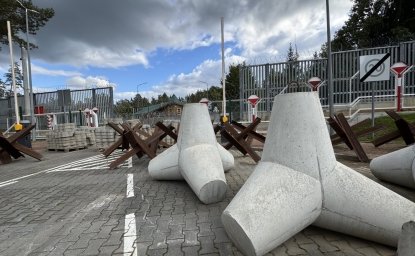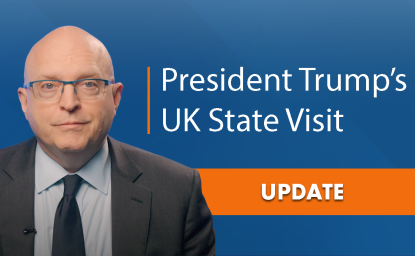What to Worry About in 2006
What should we worry about in 2006? Former Congressman Lee Hamilton offers some thoughts on the upcoming year in global affairs.
What should we worry about in 2006? Former Congressman Lee Hamilton offers some thoughts on the upcoming year in global affairs.
What should we worry about as we survey the international scene at the start of a new year? 2006 will doubtless feature persistent problems, as well as inevitable surprises.
To begin with, it is worth pointing out what we are not worried about. There is no real probability of a clash between the world's great powers – an achievement that is relatively unique in history. There is also no potential rival to U.S. power in the near future, though the costs of sustaining America's military advantage and robust role in the world are high. And, in the U.S. and many key economies around the world, growth appears to be on a solid trajectory.
While these traditional barometers are positive, the sources of instability are many. Weak governments and failing states are unable to deal effectively with conflict and turmoil. Terrorism is not diminishing. More countries – notably North Korea and Iran – are seeking weapons of mass destruction. Separatist struggles in places like Chechnya, Kashmir and the Palestinian territories remain unresolved. International alignments are in a state of flux. Competition for resources – particularly oil and water – generate their own uncertainty.
While we should support the spread of democracy, we have cause to worry about the results of democracy serving as a near-term antidote to this instability. Americans must recognize that democracy does not always yield outcomes to our liking. In Latin America, populist discontent has prompted a string of victories for left-wing governments that are ambivalent, if not hostile, toward the United States. In China, where we correctly support political reform, a too-rapid onset of democracy could lead to instability.
The popularity of "political Islam" – fundamentalist Islam as a guiding political movement – poses the most immediate concern. In the Middle East, Islamist movements are the only potent opposition to existing rulers. In Iraq, many Americans are uneasy with the probability that Shiite Islamist parties with close ties to Iran are emerging as victors of recent elections. In Egypt, where we are pressing for reform, the largest opposition party is the Muslim Brotherhood. In other key countries like Pakistan and Saudi Arabia, open democratic elections could yield huge gains – if not outright victories – for Islamists.
Migration is another trend posing mounting difficulties. In many European cities, large, predominantly Muslim immigrant populations are not effectively integrated. This poses multiple risks: civil unrest, as recently took place in France; a foothold in Europe for Islamic radicalism; or an ugly anti-immigrant backlash. Meanwhile, in the U.S., a long simmering debate about how to reform our immigration policy may reach full boil in 2006, with some calling for tougher measures to keep out illegal immigrants, and others looking for ways to integrate America's large workforce of illegal immigrants into our economic system.
Immigration is just one of several economic vulnerabilities. U.S. budget and trade deficits are unsustainable, and the day when we will have to reckon with them is drawing nearer. Inequality is disturbingly high, at home and abroad. The seemingly limitless pool of low-wage workers around the world poses risks for American workers who may see more jobs outsourced. Globalization distributes its benefits unevenly, and denies them to countries that lack new technologies. Stalemates in trade negotiations make it harder to construct a system of international trade that brings higher global economic growth and greater political stability.
International institutions are failing to keep pace. The United Nations (UN) is falling behind nimble threats like terrorism, failed states and proliferation, and is not demonstrating the ability to reform. The International Atomic Energy Agency (IAEA) lacks the authorities and capabilities to conduct robust inspections of suspected nuclear sites. The World Trade Organization (WTO) has at times been a forum for finger-pointing rather than constructive action to resolve trade disputes and effectively advance international trade.
If these troubling trends are to be turned into opportunities in 2006, effective governance will be key. In the United States and around the world, we need to implement effective solutions to these emerging problems, so that order replaces disorder, fledgling democracies are inclusive and not divisive, instability is addressed and not ignored, economic opportunity is more widely shared, and the international system is better able to keep pace with international challenges.


